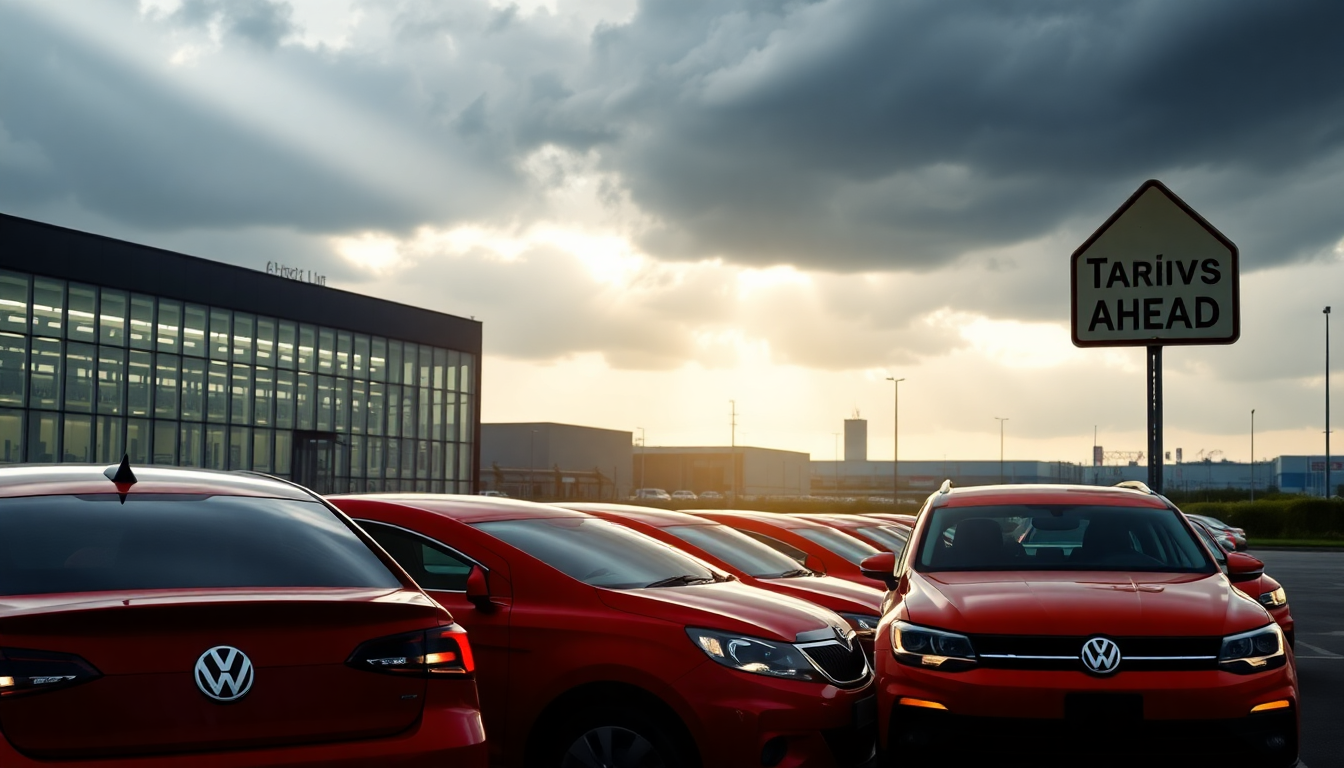Table of Contents
Volkswagen, Europe’s largest automaker, is facing some serious financial hurdles, largely due to tariffs imposed by the United States. But what does this mean for the future of the car you might drive? This announcement comes at a time when car manufacturers around the globe are battling rising costs and stiff competition, making the automotive industry a challenging place to operate.
Profit Losses and Revised Forecasts
In the first half of the year, Volkswagen reported staggering losses of about $1.5 billion, prompting the company to reassess its sales and profit margin expectations. Now, they project an operating profit margin of just 4% to 5%, a notable drop from the earlier forecast of 5.5% to 6.5%. To add to the gloom, anticipated sales growth, which was expected to reach up to 5%, has been dialed back to match last year’s numbers. Are you surprised by these shifts?
Investors weren’t taken aback, as many had anticipated a revision following the previous quarter’s unexpected fallout from the tariffs. However, there’s a silver lining for Volkswagen’s luxury brands, Audi and Porsche, which the company believes will bounce back from recent setbacks in the upcoming year. Can they turn things around?
CEO Oliver Blume emphasized that Volkswagen needs to ramp up its cost-cutting measures in response to the ongoing tariff challenges. He stated, “We need to shift our cost efforts into high gear and accelerate implementation. After all, we cannot assume that the tariff situation is only temporary.” This proactive stance is critical as the company grapples with external pressures compressing its profit margins.
Industry-Wide Challenges and Responses
Volkswagen isn’t flying solo in this storm; it’s the third major automaker this week to report significant losses due to tariffs. General Motors is facing a $1.1 billion hit, while Stellantis has taken a staggering $2.7 billion loss in the first half of 2025. Isn’t it alarming how interconnected these companies are with U.S. trade policies?
In an effort to tackle these challenges, Volkswagen and its competitors are pushing for a resolution to the hefty 25% tariff they’ve been grappling with since April. European Union diplomats are currently looking into a possible reduction to a broader 15% tariff, which could lighten the financial load on the automotive sector. The recent agreement between the U.S. and Japan has sparked some hope for a similar deal in Europe—could this be the lifeline car manufacturers desperately need?
Volkswagen’s finance chief, Arno Antlitz, indicated that profit margins could stabilize if a Japan-style deal comes to fruition. However, he cautioned that time is ticking, saying, “We are already in July, so the longer we go into the second half of the year, the more we tend to the lower end of the guidance.” This urgency paints a vivid picture of the precarious situation Volkswagen and its competitors find themselves in.
Market Performance and Future Outlook
Despite the losses, Volkswagen’s stock has shown surprising resilience, suggesting a more optimistic outlook among investors. As of midday trading in New York, shares were up more than 3% for the day, with an impressive rise of over 12% in just the past week. How does this defiance against broader market challenges make you feel about the brand?
Recent car sales data for June reveals a slowdown in Europe’s auto industry, with Volkswagen seeing nearly a 10% dip in deliveries to the U.S. market. Notably, North American sales accounted for 18.5% of Volkswagen’s total revenue in the first half of 2025, underscoring the significance of this market. Isn’t it fascinating how geography can impact business?
Moreover, both Porsche and Audi are feeling the pinch from U.S. tariffs, as they lack production facilities on American soil and heavily rely on exports. This has led to a jaw-dropping 90% plunge in Porsche’s operating results for the second quarter, while Audi’s figures took a 64% hit. Blume remains optimistic, suggesting that both brands could see a turnaround by 2026. Do you think they can bounce back?
As Volkswagen navigates the rough waters of the current trade environment, it must also focus on internal restructuring efforts aimed at job reductions and efficiency improvements. The strategies they implement now will be pivotal in determining their resilience and recovery moving forward. What do you think lies ahead for this iconic automaker?


